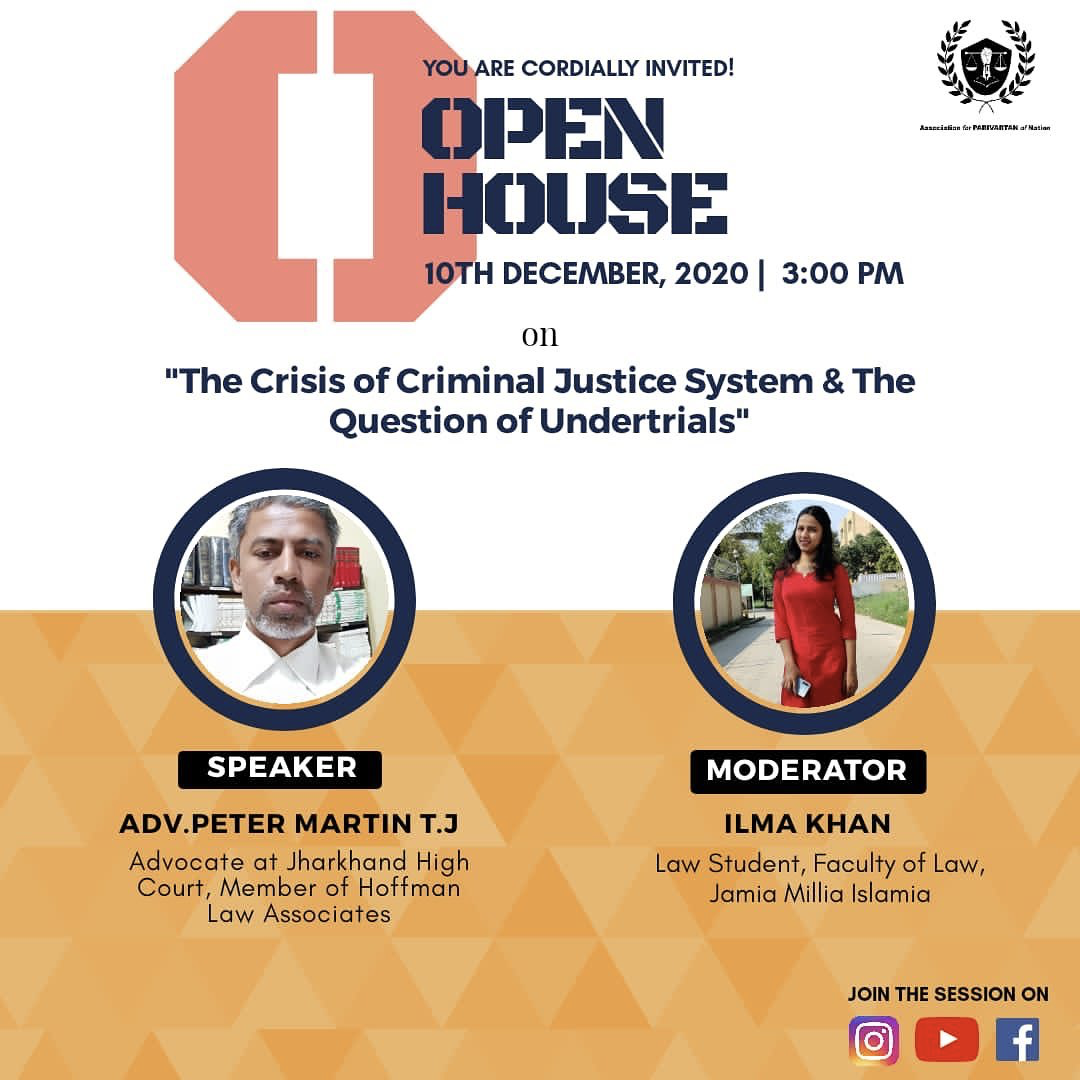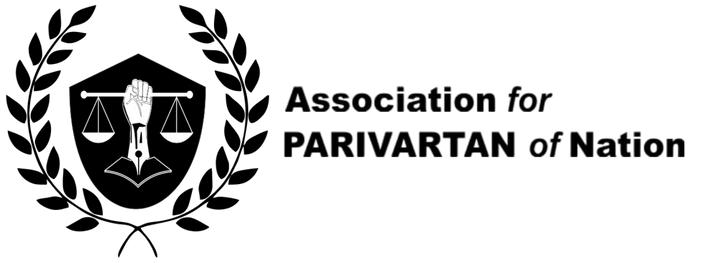Open House
On 10 Dec 2020, APNA’s Open House on India’s criminal justice crisis drew 100+ engagements. Advocate Peter Martin noted 70% of prisoners are undertrials, where “process is punishment.” The session urged reforms for speedy trials, dignity, and an end to torture-based investigations.

The Crisis of the Criminal Justice System & The Question of Undertrials
On 10th December 2020, the Association for Parivartan of Nation (APNA) organised an Open House to deliberate on the growing crisis of India’s criminal justice system and the pressing issue of undertrial prisoners. The virtual event, moderated by Ilma Khan, a law student at the Faculty of Law, Jamia Millia Islamia, drew an audience of more than 1400 on Facebook, Instagram and YouTube, spanning students, activists, legal practitioners, and community members.
The keynote address was delivered by Advocate Peter Martin T. J., a practising lawyer at the Jharkhand High Court and member of Hoffman Law Associates. He began by painting a stark picture:
“Seventy per cent of prisoners in India are undertrials, unconvicted, waiting endlessly for justice. For them, the process has become the punishment. ‘Innocent until proven guilty’ sounds like a cruel oxymoron when thousands languish behind bars for years without trial.”
Participants listened intently as Advocate Martin spoke of recent cases of police brutality against undertrials. He criticised what he termed a “primitive style of investigation”, where torture is used under the guise of securing confessions. “This not only violates constitutional guarantees,” he noted, “but also provides impunity to officials, allowing brutality to be disguised as investigative necessity.”
Adeel Khan, a law student, who joined the session, voiced his concern, “We, young men, are trapped in this vicious cycle. Once arrested, even if innocent, they can spend years in jail without conviction. This isn’t justice, it is a slow death.”
The discussion turned to political prisoners, with Martin highlighting how those whose ideologies challenge ruling powers often face prolonged incarceration without trial. “The right to a speedy trial exists on paper,” he reminded, “but in practice, justice is delayed to the point of denial.” APNA’s organiser, Sapna Gupta, reflected on the purpose of convening the dialogue,
“We wanted to give people a space to understand how deep-rooted the crisis is. It is not just about statistics, it is about human lives- about fathers, mothers, sons, and daughters whose futures are being stolen.”
The session also explored possible remedies, such as the provision of compensation for undertrials who have been unjustly detained. While acknowledging its potential for relief, Advocate Martin cautioned: “The very process of securing compensation is itself a labyrinth. For most undertrials, particularly those from marginalised backgrounds, this remains inaccessible.”
In concluding remarks, the speaker emphasised the need for strong state action: “Without political will, these systemic problems will continue. Infrastructure must improve, legal procedures must be streamlined, and above all, the dignity of every citizen must be upheld.”

